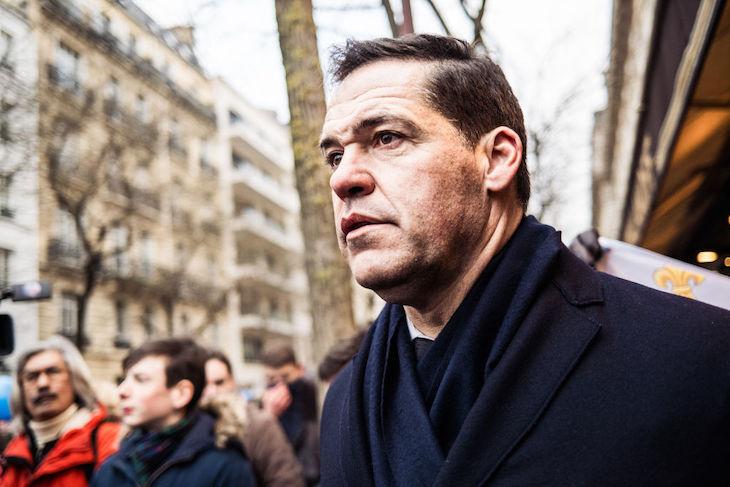From the stability of the Fifth Republic’s institutions, France is regressing to the chronic instability of bygone republics. In eight years as president, Emmanuel Macron has expended eight prime ministers. For the moment, one per year compares favourably with the Third and Fourth Republics, whose governments averaged nine and six months respectively. But the pace is accelerating. Since Macron’s re-election in May 2022, his prime ministerial tally is five, with the last government surviving 14 hours. Where to look for a ray of hope in France’s darkening political crisis?
New government, dissolution, presidential resignation? None seem likely to unblock France’s political and institutional gridlock
General de Gaulle designed the Fifth Republic in 1958 specifically to engineer political stability. And it worked. But new-boy Emmanuel Macron’s 2017 presidential campaign was designed to dynamite the traditional right and left parties which had governed the 5th Republic. Since then, come hell or high water, gilet jaunes or riots, Macron has governed from the extreme centre. Unabashedly Jupiterian in his exercise of power, he has elevated the ‘republican monarchy’ to new heights. Today he remains holed up in the Elysée Palace surrounded by a handful of courtiers, like Louis XVI at Versailles in 1789. So where lies France’s salvation?
New government, dissolution, presidential resignation? None seem likely to unblock France’s political and institutional gridlock. Even with the Rassemblement National polling 35 per cent for a first round in legislative and presidential elections, most scenarios still point to a hung parliament. A union of the French right from RN to the Republican Party may be in gestation, but birth will be difficult.
Imagine then the surprise last week when a voice from France’s turbulent past gently reminded the French people that alternatives exist. In an interview to the Journal du Dimanche newspaper, Louis de Bourbon, alias the Duc d’Anjou, alias Louis XX, intimated that he was ready to serve France in ‘the face of the governing class’s negligence’. The descendant of France’s last reigning monarch has chosen a propitious moment to be heard. ‘King Emmanuel’ – as his detractors refer to him – has sculpted a presidential monarchy whose finishing touches merely require the original to replace a copy.
‘The political, institutional and social state of our country continues to worsen. I consider it my role as head of the House of Bourbon and heir of the dynasty that made France to speak on the issue.’ He continued: ‘At a moment of decision, I hope that the monarchical legacy of which I am the trustee is still sufficiently vibrant in the heart of my compatriots to be a source of inspiration and, I must say, hope.’
However whimsical Louis’ appeal, the French know full well that restorations have been recurring features of their modern history. Following the excesses of the Revolution, Napoleon Bonaparte’s 1799 coup d’etat implemented a new Bonapartist branch of monarchy. And Napoleon’s eviction restored in 1814 the Bourbons Louis XVIII and Charles X. Renewed revolution in July 1830 brought a restoration, this time of the Orleanist branch of the French royal family. After the establishment of the Second Republic in the wake of the 1848 revolution, it was the turn of Napoleon Bonaparte’s nephew, Louis-Napoleon, elected president of the Republic, to carry out his own coup d’etat in 1852 to restore the Bonapartists under the Second Empire. Even under the Third Republic from 1870 pro-monarchist parties were elected to parliament and, were it not for Bourbon and Orleanist divisisions, might have gained power in 1877.
In the end, republicanism was deemed to be ‘the form of government that divides France least’. That belief, however, has withered of late. Even General de Gaulle, in his 1950s correspondence with the Comte de Paris, heir to the Orleanist branch of the royal family, countenanced a restoration. Today in France, the institution of monarchy, albeit not necessarily the French version, is still popular. A September 2022 Figaropoll showed the monarchy more popular with under 35s (52 per cent) than over 65s (36 per cent). Queen Elizabeth II’s state funeral in 2022 attracted seven million French viewers.
The French attitude to monarchy is awash with paradox and ambiguity. However much decades of French republican institutions have downplayed French monarchy, sensing their national identity and way-of-life challenged, today many French are unable to forget the contribution of a thousand years of monarchy. But can the fundamental divisions of French contemporary politics really be resolved by recourse to King Louis XX, when also waiting in the monarchical wings is the Orleanist Comte de Paris, alias Jean IV? Swapping interminable discussions about new prime ministers for historically divisive disputes of Legitimists versus Orleanists may not seduce even the disputatious French.








Comments